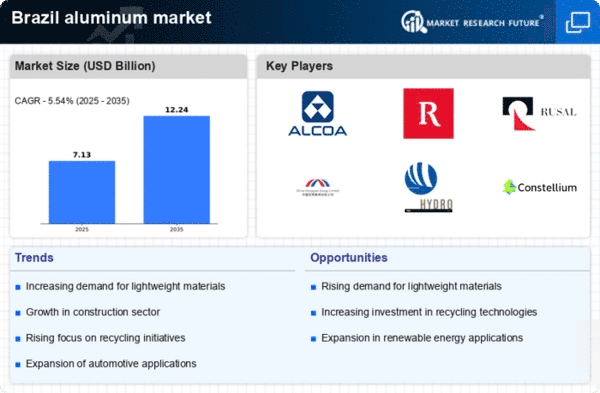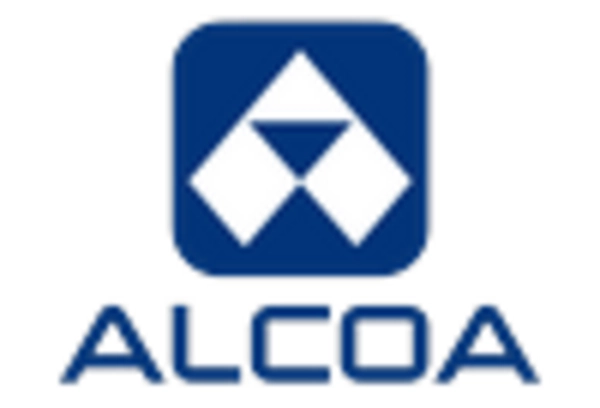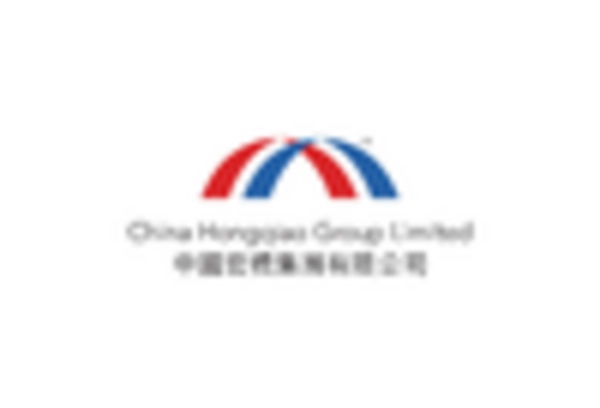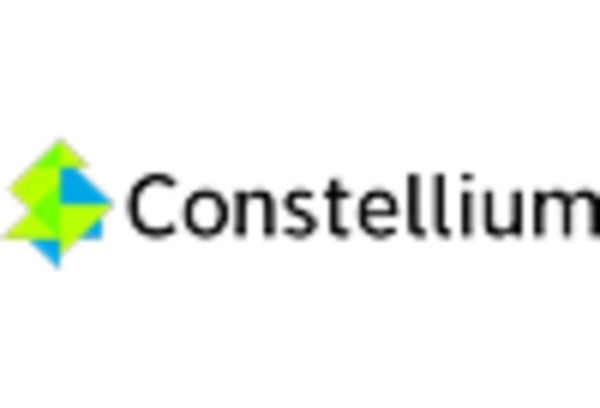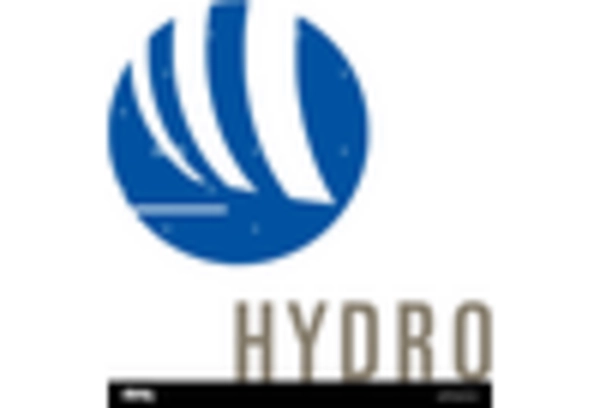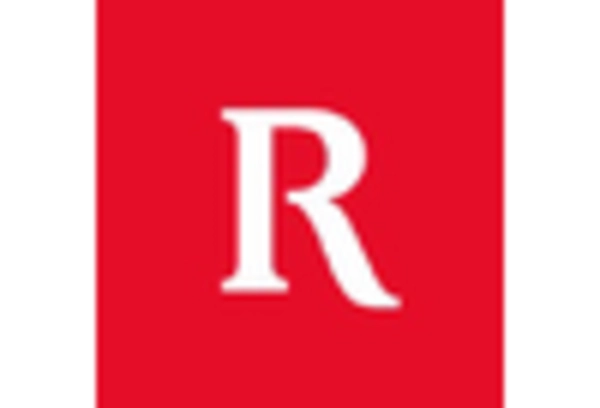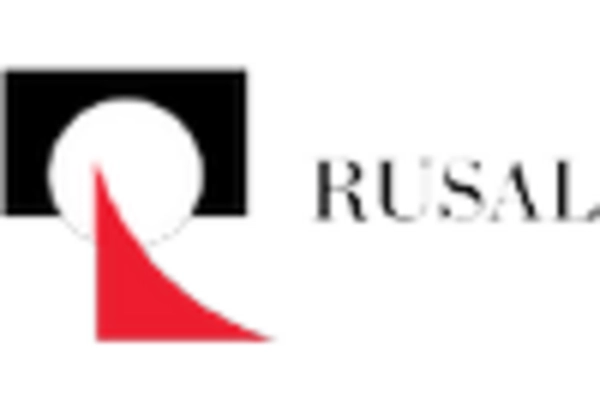The aluminum market in Brazil is characterized by a competitive landscape that is increasingly shaped by sustainability initiatives, technological advancements, and strategic partnerships. Key players such as Alcoa Corporation (US), Rio Tinto (GB), and Novelis Inc. (US) are actively pursuing strategies that emphasize innovation and operational efficiency. Alcoa Corporation (US) has focused on enhancing its production capabilities through investments in low-carbon technologies, which aligns with the growing demand for sustainable aluminum solutions. Meanwhile, Rio Tinto (GB) has been expanding its footprint in Brazil, leveraging its global expertise to optimize local operations and supply chains. Novelis Inc. (US), a leader in aluminum recycling, is also enhancing its market position by investing in advanced recycling facilities, thereby addressing both environmental concerns and the rising demand for recycled aluminum products.The business tactics employed by these companies reflect a concerted effort to localize manufacturing and optimize supply chains. The market structure appears moderately fragmented, with several players vying for market share while also collaborating on sustainability initiatives. This collective influence of key players fosters a competitive environment where innovation and operational excellence are paramount.
In August Alcoa Corporation (US) announced a partnership with a Brazilian renewable energy firm to power its smelting operations with 100% renewable energy. This strategic move not only enhances Alcoa's sustainability credentials but also positions the company to benefit from Brazil's abundant renewable resources, potentially reducing operational costs and carbon emissions significantly.
In September Novelis Inc. (US) unveiled plans to expand its recycling capacity in Brazil by constructing a new facility aimed at increasing the production of low-carbon aluminum. This expansion is strategically important as it aligns with global trends towards circular economy practices and positions Novelis to meet the growing demand for sustainable aluminum solutions in various industries, including automotive and packaging.
In October Rio Tinto (GB) launched a new initiative focused on digital transformation within its Brazilian operations, implementing advanced data analytics to optimize production processes. This initiative is likely to enhance operational efficiency and reduce costs, thereby strengthening Rio Tinto's competitive edge in the market.
As of November the competitive trends in the aluminum market are increasingly defined by digitalization, sustainability, and the integration of artificial intelligence. Strategic alliances among key players are shaping the landscape, fostering innovation and collaboration. The shift from price-based competition to a focus on technological advancement and supply chain reliability is evident, suggesting that future competitive differentiation will hinge on the ability to innovate and adapt to evolving market demands.


